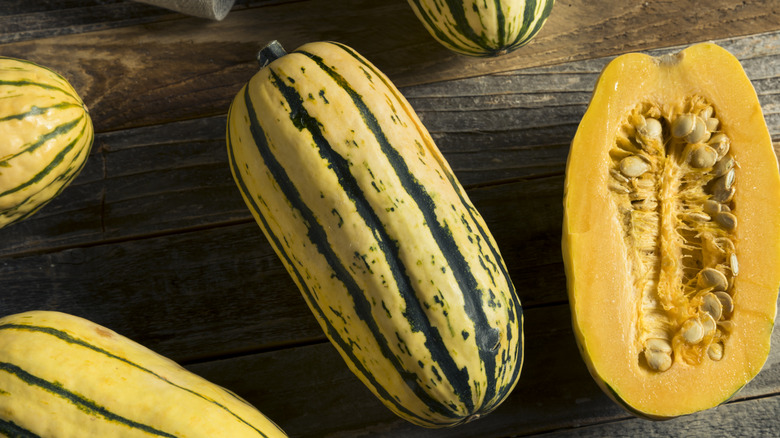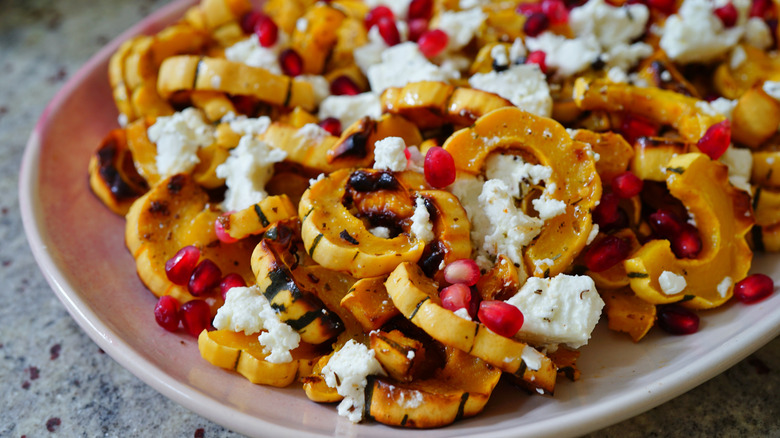Why You Should Start Cooking With More Delicata Squash
As leafy, fall odors take to the air and our biological clocks switch to their autumnal setting, we find ourselves reaching for comforting, seasonally-inspired dishes to ease the pain of summer's passing. It doesn't get much cozier than pumpkin-spiced breakfast foods like oatmeal or french toast, lattes or cocktails, and sweet and sumptuous baked goods – but delicious squashes don't always have to be served shrouded in sugar. In fact, most types of squash and pumpkin already provide notes of sweetness that play very well in sweet-and-savory contexts, like this delicata dish inspired by Chef Gabe Thompson of L'Artrusi in New York City.
While roasted cubes of the ever-popular butternut are often a welcome and warming addition to a fall meal, the prep time involved is not exactly conducive to a fast-and-easy weeknight dinner. If you're looking to simplify your cooking process while still tapping into the autumn spirit, you'll want to consider switching to an even easier squash to handle: the delicata.
Best ways to eat delicata squash
Especially when compared to larger or unwieldy squashes like butternut or the hard-to-peel acorn, handling a delicata squash is a breeze. Because the skin of delicata squash is thin and softens up when cooked, it is a flavorful and toothsome addition to the final cooked product — no need to peel the skin away (via Bon Appétit). This guarantees texture variance with each bite and reduces the likelihood of ending up with mushy, boring squash. Mild and sweet, this hearty squash is also sometimes called the sweet potato squash for the similarity in their flavors and their orange-colored flesh (per North Dakota State University). Simply wash your delicata, slice it — skin and all — and cook it to your liking, dressing it however you see fit before serving.
Delicata is not only delightfully easy to cook with, but it also contributes several key nutrients like vitamins C, A, and B-complex groups like riboflavin. They are also a great source of fiber, folate, potassium, and minerals like manganese, calcium, and iron (via Nutrition and You) — which means in cooking with this fruit, you will be more likely to create a hearty, delicious, and satiating dish that discourages overeating (per Healthline).
If you're anything like us, you'll be looking for interesting ways to get this squash to the table, such as melt-in-your-mouth Juniper-Rubbed Duck Breast With Delicata Squash or this delightfully autumnal recipe for Delicata Squash With Lardo And Marjoram.

